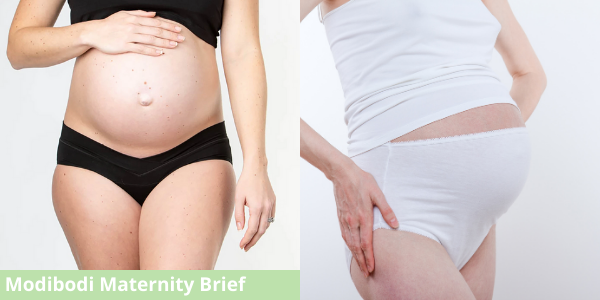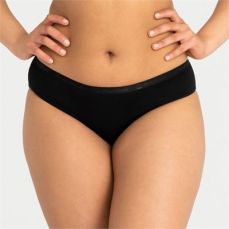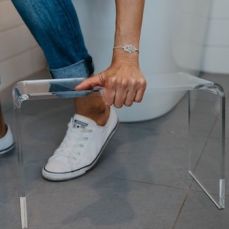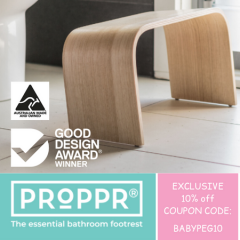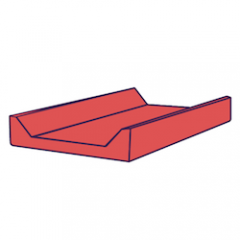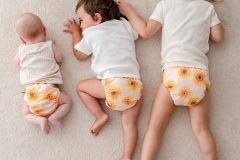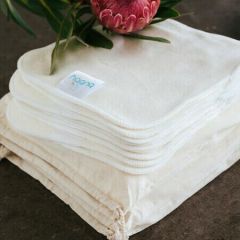Caring for Your Lady Parts Hygiene Suitable for stages: Pregnancy, 0 - 3 Months, 3 - 6 Months, 6 - 12 Months, 12 - 18 Months, 18 - 24 Months
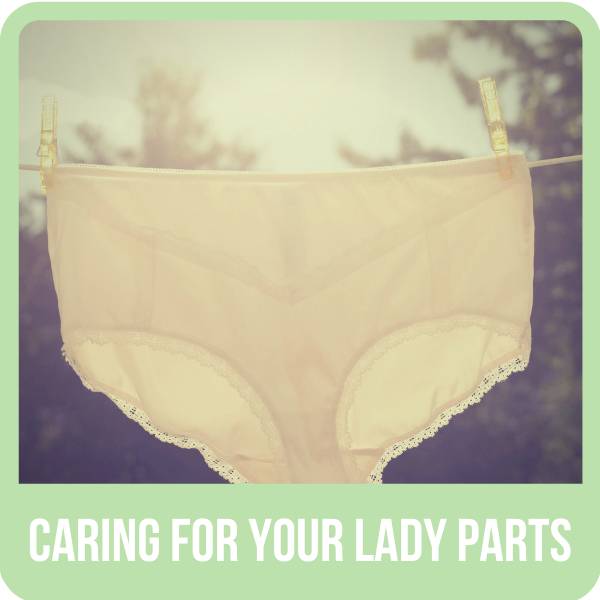

If you never thought much of your monthly cycles before wanting to have children, there's nothing like being pregnant to begin to appreciate what being a woman really means. It is also a great time to get acquainted with your lady parts and how they work.
For women, down there includes 3 openings, the urethra which connects to the bladder, the vulva which connects to the vagina and uterus and the anus which connects to the bowels. Compared to men, there is a lot going on down there!
Toileting hygiene
Toileting is a fact of life and it is one that you will become a lot more aware of when you start caring for your newborn - after all, what goes in, must come out!
The pregnant body has a lot of hormonal and physical changes happening which can affect your bladder and bowels. It can feel like you are visiting the toilet to empty your bladder a lot more during different times of your pregnancy. It can also be common to experience constipation especially if you are taking an iron supplement to address low iron levels. Your body sends you signals when your bladder and bowels are ready to be emptied, your perception of these internal signals is known as interoception. After birth, doing kegel exercises regularly will help to rebuild the tension in and control of your perineal muscles which are responsible for controlling the flow of urine and bowel movements. Kegels aren't the answer to every problem though so it is a great time to learn what you need to do to help yourself to balance the tension down there. The Functional Pelvis website has great information you can check out.
Hygiene around toileting is particularly important during pregnancy to avoid faeces transmitted viral and bacterial infections. When it comes to wiping yourself clean, it is always recommended to wipe once from front to back and use fresh unscented and chemical-free toilet paper for the next wipe. If you need to use toilet wipes that are moist and thicker, always dispose of these into a lidded bin, never flush these as they don't break down easily and can form fatbergs in the sewer systems and clog up your toilet system. Wiping from front to back is best achieved by reaching around behind your back and serves to prevent any faecal matter from coming in contact with your urethra and vaginal openings which can cause infections. Signs of an infection include itching, burning or redness which will warrant a medical check-up.
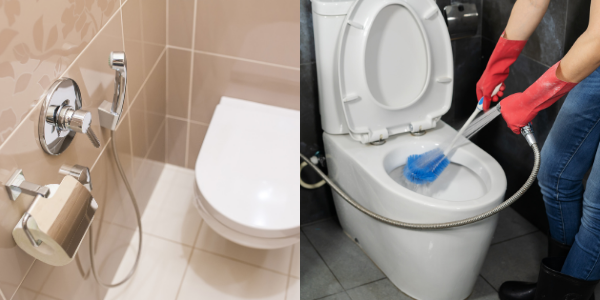
If you can't physically reach around your body to wipe effectively, a bidet toilet seat is a good option to get your areas clean (these are hugely popular and commonplace in Japan). Cloth Nappy sprayers can be attached to your toilet for washing yourself or washing out soiled or menstrual underwear or nappies with the water falling directly into the toilet. Installing this now will mean it is already in place to deal with the clean up from nappy blowouts and to manage hygiene around re-usable nappies and wipes. You can also use it to wash down your baby's bum after a poo-nami.
After using the toilet, it is recommended to close the toilet lid before flushing to avoid any airborne aerosol particles which can be carried by the toilet plume. If you come back and find that the toilet needs a clean, do this before you use it, wash your hands and then use the toilet. Of course, one of the simplest things you can do to maintain hygiene is to thoroughly wash your hands after using the toilet and before touching anything else in the room. You can also regularly change your hand towel and make sure it has airflow around it to dry out between uses.
The moist environment of the toilet can be a place where bacteria, viruses and fungus can thrive. This is why thoroughly washing your hands with soap and water after going to the toilet or touching the toilet is a simple yet effective hygiene practice. If you can't get anyone else to clean your toilet, opt for non-toxic cleaners where possible and make sure the room is well ventilated.
Check out Biome Eco Stores' range of Clean + home bathroom products
Check out Nourished Life's range of eco cleaning and home products
Sexual health
If you are like most women, your education regarding the female sexual organs may have been lacking or you were left with a "sex-negative" or "fear-based" understanding of sexuality rather than a "sex-positive" approach. It can take women a long time to be comfortable with their sexuality because of the cultural and religious stigmas attached to female sexuality and negative body image programming of adolescence and young adulthood.
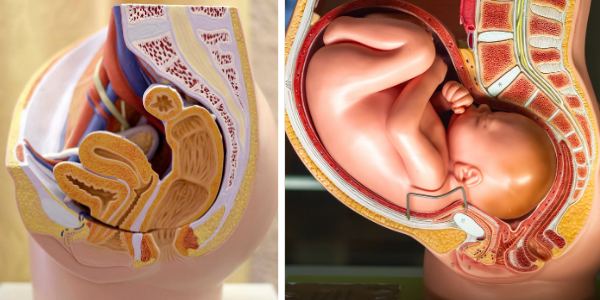
When you are becoming a mother, this can be an opportunity to explore your body in a way you may not have done before, opening you up to greater sexual pleasure and intimacy. Your internal focus on the womb space can ignite a kind of 'remembering' of your divine feminine energies and how to tune into these as a source of power. Your sexual health, which includes orgasm, is considered vital to overall well-being and is associated with better psychological, intimate relationship and psychophysiological function. In the Birthing Better course, you are encouraged to do the 'internal work' with your partner, to become familiar with your internal spaces, including where you hold tension, to prepare for birthing your baby through the birth canal. The more comfortable and familiar you can be with all areas of your body, the more control and sensory awareness will have through your birthing years and beyond.
Going with the flow
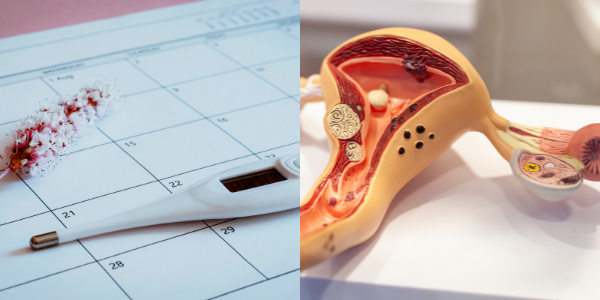
Women's bodies run on a cycle of roughly 28 days with 4 distinct phases or seasons. The energy of these phases seems to be felt by women, whether they are menstruating or not. When you understand these energy cycles, you can work with your flow to get more out of life. This concept is explored in detail in the book "Do Less, A Revolutionary Approach to Time and Energy Management for Busy Moms" by Kate Northrup.
One of the best parts of being pregnant is the break from the monthly cycle of managing menstruation. Depending on how long and how often you are breastfeeding, menstruation can return as early as 3 months after birth or may not return for over 1 year after birth. Delaying the return of your monthly's can be one of the benefits you receive from extended or full-term breastfeeding.
At the beginning of your pregnancy, some bloody spotting can be experienced, but if you are concerned about this at all, seek medical advice. Towards the end of your pregnancy, when nearing the time that your baby is expected, it can be a good idea to wear period-proof underwear or sanitary pads in maternity undies. This gives you some peace of mind when the time comes for labour when you can have a bloody show, or you can experience a 'gush' of your waters breaking. It is also not uncommon to get some light bladder leakage when your baby is fully engaged and pushing on your bladder so that some extra absorbency will be appreciated in those instances.
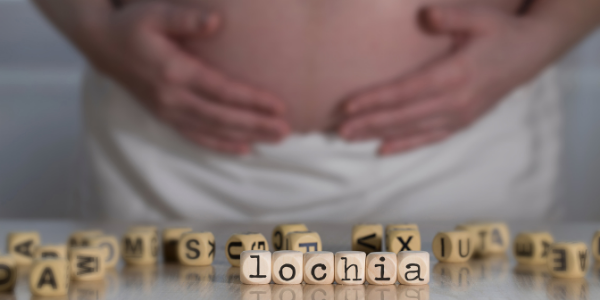
After birth, the lochia sheds for around 4 - 6 weeks as the uterus contracts down, which can initially involve passing large clots. Make sure you read up on how much bleeding to expect and know the signs of infection so you know when you may need to seek medical assistance. It's a good idea to have a stock of maternity pads in addition to what you may access in the hospital and either disposable undies or use old undies that you don't mind throwing away. For extra peace of mind at night, you can use disposable absorbent sheets like the hospital provides or washable bed protector (which will be used plenty of times in the toddler years) such as Brolly Sheets from Lime Tree Kids.
The good news is that your vagina is self-cleaning and maintains a healthy microbial population if not interfered with through activities such as douching and using irritating soaps, washes, wipes or deodorants. Engaging in sexually stimulating activities to produce lubricating fluids also helps to clean out the vagina. Just be sure to go to the toilet afterwards to further flush out any bacteria hanging out around the urinary tract. Additionally, avoiding processed and high sugar foods and making sure you are drinking enough fluids also contributes to feminine health down there.
Once your menstrual cycle returns after birth, things can feel a little different, and you may settle into a new cycle length as if your body has hit a re-set button. You may feel more in tune with your body after developing this skill through your pregnancy, birth, breastfeeding journey and caring for your little one. One thing you may notice is how you feel at different times of the month as you cycle through the four phases, each lasting approximately 7 days, menstruation, follicular, ovulation and the luteal phase. Each of these phases is distinct in how you feel and influences your connection with your body, creativity, energy levels and productivity. It's fascinating to learn about your cycles and tune into and appreciate what is happening in your body. For more on this, see this video by the Wild Orange Tree & this video by Alisa Vitti.
You may want to explore your options in terms of menstrual products, this video by The Wild Orange Tree takes you through your options. It is also important to make sure your perineal area is kept dry and with air flow around it, rather than in moist underwear or a tight-fitting crotch hugging environment.
The best everyday underwear is free from synthetic fabrics, ideally cotton, washed with unscented detergent, loose around the perineal area rather than 'thong' style underwear, and free from chemicals (eg. organic materials, free from dyes etc). During pregnancy, your underwear needs to accommodate your growing bump, so maternity underwear will be a lot more comfortable in the middle to later stages of pregnancy and worth investing in.
Explore toxin-free and eco-friendly period care products from Biome Eco Stores or Nourished Life
Please note: Above all, any information on this website aims to provide general ideas for informational and educational purposes only. We encourage users to investigate several information sources, including, where necessary, independent individualised medical advice before making any decisions that could affect you or your child’s health or wellbeing.
* BabyPeg participates in various affiliate programs and may earn a commission for referring our users through the links provided. This is at no additional cost to our users. We take great care in choosing products and services which align with the mission of promoting better health and wellness for our BabyPeg community. Where possible, products are tried and tested by us. To continue to provide BabyPeg as a free service and reach as many parents as possible, we appreciate your support in using the link provided to purchase if you decide the product is right for you.
